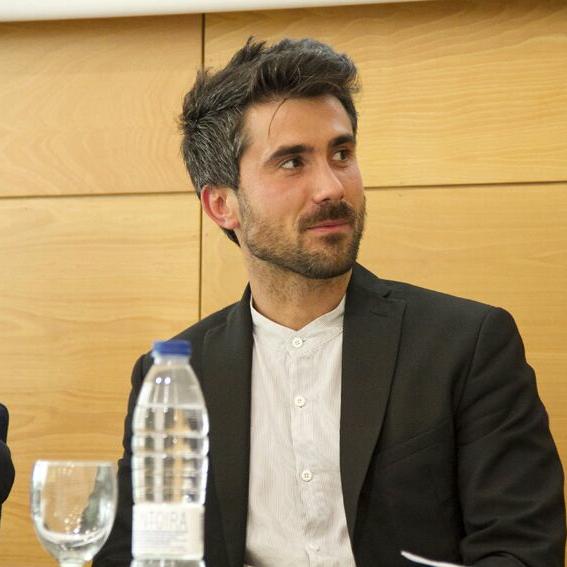Studying at the University of Verona
Here you can find information on the organisational aspects of the Programme, lecture timetables, learning activities and useful contact details for your time at the University, from enrolment to graduation.
Academic calendar
The academic calendar shows the deadlines and scheduled events that are relevant to students, teaching and technical-administrative staff of the University. Public holidays and University closures are also indicated. The academic year normally begins on 1 October each year and ends on 30 September of the following year.
Course calendar
The Academic Calendar sets out the degree programme lecture and exam timetables, as well as the relevant university closure dates..
| Period | From | To |
|---|---|---|
| 1° periodo lezioni (1A) | Sep 16, 2024 | Oct 26, 2024 |
| 1° periodo lezioni (1B) | Nov 4, 2024 | Dec 16, 2024 |
| 2° periodo lezioni (2A) | Feb 10, 2025 | Mar 22, 2025 |
| 2° periodo lezioni (2B) | Mar 31, 2025 | May 23, 2025 |
Exam calendar
Exam dates and rounds are managed by the relevant Law Teaching and Student Services Unit.
To view all the exam sessions available, please use the Exam dashboard on ESSE3.
If you forgot your login details or have problems logging in, please contact the relevant IT HelpDesk, or check the login details recovery web page.
Should you have any doubts or questions, please check the Enrollment FAQs
Academic staff
 bernardo.calabrese@univr.it
bernardo.calabrese@univr.it
 mila.dallapreda@univr.it
mila.dallapreda@univr.it
 roberto.flor@univr.it
roberto.flor@univr.it
 stefano.gatti@univr.it
stefano.gatti@univr.it
Study Plan
The Study Plan includes all modules, teaching and learning activities that each student will need to undertake during their time at the University.
Please select your Study Plan based on your enrollment year.
1° Year
| Modules | Credits | TAF | SSD |
|---|
2° Year It will be activated in the A.Y. 2025/2026
| Modules | Credits | TAF | SSD |
|---|
6 modules among the following| Modules | Credits | TAF | SSD |
|---|
| Modules | Credits | TAF | SSD |
|---|
6 modules among the following| Modules | Credits | TAF | SSD |
|---|
Legend | Type of training activity (TTA)
TAF (Type of Educational Activity) All courses and activities are classified into different types of educational activities, indicated by a letter.
Global comparative law (2024/2025)
Teaching code
4S009797
Teacher
Coordinator
Credits
6
Also offered in courses:
- Global comparative law of the course Combined Bachelor's + Master's degree in Law
Language
Italian
Scientific Disciplinary Sector (SSD)
IUS/21 - COMPARATIVE PUBLIC LAW
Period
2° periodo lezioni (2A) dal Feb 10, 2025 al Mar 22, 2025.
Courses Single
Authorized
Learning objectives
The course is included in the learning area Global dimension of legal phenomena, and aims at providing students with advanced legal knowledge of the global dynamics of legal phenomena and their functioning. A specialist in transnational law must be able to analyse global phenomena, including the more complex ones (socio-economic, political, related to climate change) by using methods and key concepts of modern comparative public law.
At the end of the course, the student be familiar with the analysis and the understanding of differentiated regulatory systems that complete the legal approach to environmental, social and economic sustainability, with particular reference to the multilevel and transnational functioning of modern law.
The student will acquire the ability to address and to solve real problems of the professional context in which he/she will operate by orienting his/her competence to the compliance and prevention of judicial conflict. He/she will be able to decode the practical consequences of the regulatory framework and to solve concrete problems – in written and oral form as well as through group work, and by resorting to the method of Problem Based Solving (PBS). Students will become familiar with the appropriate, specific disciplinary vocabulary, adopting the correct lines of reasoning and argumentation, and making independent judgments. The teaching method used is functional to the continuous learning and updating of acquired knowledge.
Type D and Type F activities
Modules not yet included
Career prospects
Module/Programme news
News for students
There you will find information, resources and services useful during your time at the University (Student’s exam record, your study plan on ESSE3, Distance Learning courses, university email account, office forms, administrative procedures, etc.). You can log into MyUnivr with your GIA login details: only in this way will you be able to receive notification of all the notices from your teachers and your secretariat via email and soon also via the Univr app.
Internships
Internships are aimed at enabling students to gain direct knowledge of the world of work and to acquire specific professional skills.
Internships are carried out under the responsibility of an individual lecturer, and can be carried out in professional firms, public administration bodies and companies recognised by the University of Verona.
Any CFU credits gained by doing internships will be recognised and recorded by the University in accordance with the relevant University regulations in force (Regolamento d’Ateneo per il riconoscimento dei crediti maturati negli stage universitari).
For further information on internships, please go to: https://www.univr.it/it/i-nostri-servizi/stage-e-tirocini.

 +39 045 802 8549
+39 045 802 8549


























